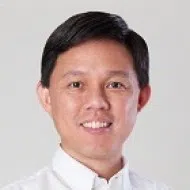Minister Chan Chun Sing on Singapore-China relations: Mutual trust is vital to navigate a changing world
Singapore Minister for Education and Minister-in-charge of the Public Service Chan Chun Sing gave the keynote address during the 9th Singapore-China Forum on Leadership in Beijing on 12 September 2023. Minister Chan noted the importance of taking stock and exchanging notes on how countries' approaches to governance must evolve as both the internal and external environment change, and stressed that facing the new challenges of the modern world requires cohesive leaders who work well together, not only within the government and with the people, but also with businesses and globally with international partners. Here is the edited transcript of his speech.
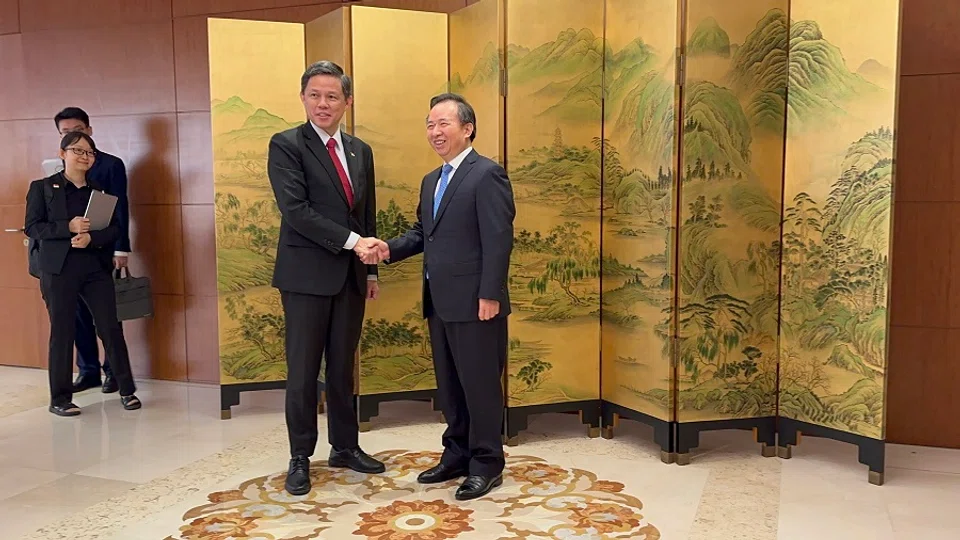
Singapore and China have a longstanding and multifaceted relationship based on mutual understanding and a deep sense of trust. This can be traced back to the firm foundation laid by Deng Xiaoping and Lee Kuan Yew in the 1970s, and the establishment of our formal diplomatic relations in 1990. Over the years, the bilateral relations between Singapore and China have grown from strength to strength.
Our three signature government-to-government (G2G) projects - the Suzhou Industrial Park, the Sino-Singapore Tianjin Eco-City, and the China-Singapore (Chongqing) Demonstration Initiative on Strategic Connectivity (CCI) - have continuously reinvented themselves to match our countries' priorities at different development phases, and spearhead new models of growth. These projects are a statement of our mutual trust that enables both countries to support each other's development, sharing in each other's success through cooperation and knowledge exchange.
Economically, China remains Singapore's largest trading partner, while Singapore has been China's largest foreign investor since 2013.
Building trust and deepening ties
We also have various high-level inter-governmental platforms that seek to enhance cooperation, deepen engagements and forge trust among our leaders and officials. For example, the apex Joint Council for Bilateral Cooperation, this Singapore-China Forum on Leadership, the Singapore-China Social Governance Forum, the Singapore-China Legal and Judicial Roundtable and the Singapore-China Defence Ministers' Dialogue. These are some examples of our extensive bilateral cooperation based on mutual understanding and trust.
This forum has been a unique premier platform for us to have such frank and in-depth exchanges, at a senior leadership level - on the challenges and best practices in governance and leadership; and for us to seek out more opportunities for both sides to cooperate and better fulfill the evolving aspirations of our people.
It is also a signature forum for both sides to better understand each other, build mutual trust and deepen our ties. Today marks my fifth time attending this forum, and my second year as co-chair. I am glad to be here at Diaoyutai State Guesthouse this year, and to have the chance to learn more about the Xiong'an New Area, China's "city of the future", during our visit yesterday. I recall visiting the China Training Centre for Senior Personnel Management Officials here in Beijing in 2012, and the China Executive Leadership Academy in Yan'an in 2019, which gave me and my colleagues a better understanding of China's approach to developing your cadres.
This is only possible with a deep sense of mutual trust and understanding between both countries; and strong commitment at all levels to continually work together and support each other to succeed.
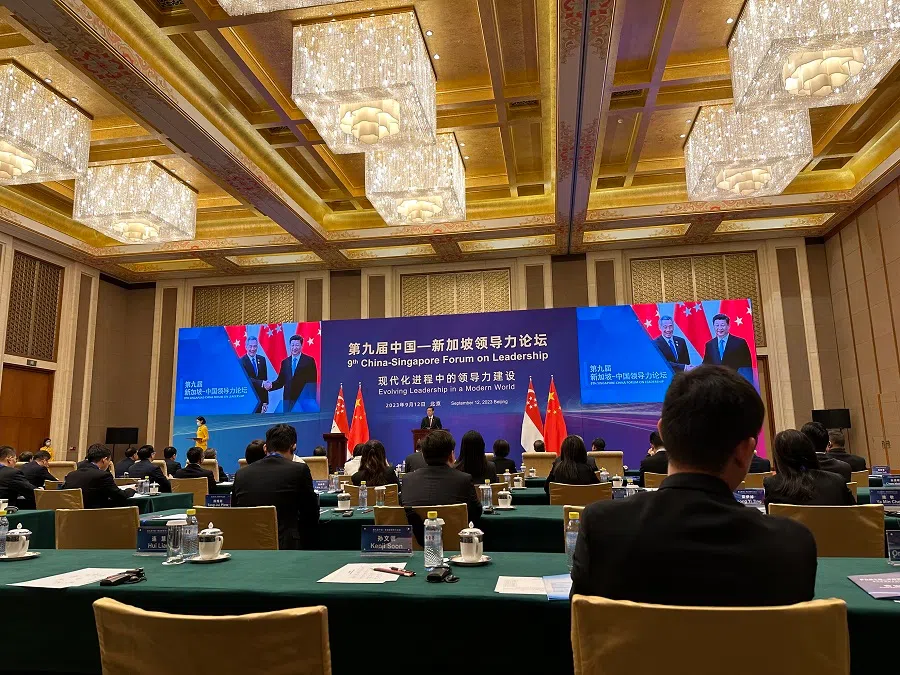
This year is also a very special year to commemorate another milestone in our bilateral relations. We upgraded relations to the "All-Round High-Quality Future-Oriented Partnership", during Prime Minister Lee Hsien Loong's meeting with President Xi Jinping in March this year.
Milestones like these are a timely reminder to reflect on how our bilateral relations have progressed over generations of leaders. This is only possible with a deep sense of mutual trust and understanding between both countries; and strong commitment at all levels to continually work together and support each other to succeed.
Three challenges in the modern world
The theme of this year's forum "Evolving Leadership in the Modern World" is indeed well chosen, as Minister of the Organisation Department of the Community Party of China Central Committee Li Ganjie also said.
Our world has changed much in the past decade. It will change even more and faster in the coming years. It is timely that we take stock and exchange notes on how our countries' approaches to governance must evolve as both the internal and external environment change.
The world order, built upon the rule of law, multilateralism and open trade, can no longer be taken as a given in the coming years.
Although China and Singapore are very different in terms of size, history and context, there are three key global trends that present both challenges and opportunities to our countries.
Let me share three key challenges of our times:
Fragmenting global order
The world order, built upon the rule of law, multilateralism and open trade, can no longer be taken as a given in the coming years.
The war in Ukraine has shown us that the global security order that has underpinned peace, growth and the uplifting of millions from poverty in the past decades is no longer a given.
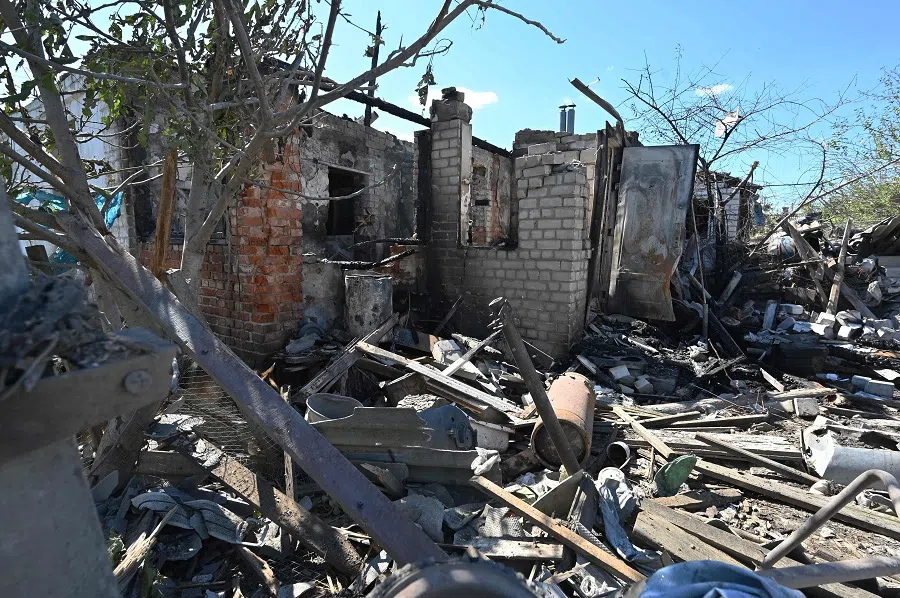
To overcome this, it will require hard work and commitment by all parties to maintain order in the global system, develop new rules and push for progress collectively.
Fragile global economic order
Economic inequalities as well as geopolitical and national security considerations are accentuating protectionism. We are already seeing it in various guises - increasing on-shoring or near-shoring of supply chains and economic competitions coloured by security concerns.
It is understandable for countries to seek diversification to avoid over-reliance on a single supplier. But when taken too far, it may lead to the bifurcation of technology and supply chains.
And if the world continues to split into rival regional blocs, we can expect global trade, investments, exchange of ideas and innovation to reduce.
Such moves paradoxically create a fractured global economic system where all will be poorer collectively. And if the world continues to split into rival regional blocs, we can expect global trade, investments, exchange of ideas and innovation to reduce. It will be challenging to experience the kind of prosperity and progress that the world has enjoyed in the past 50 years.
Fractious domestic order
The social environment in many countries has also become more fractious. Without a cohesive domestic environment, no country can exercise regional or global leadership to undertake collective actions and overcome our common and shared challenges.
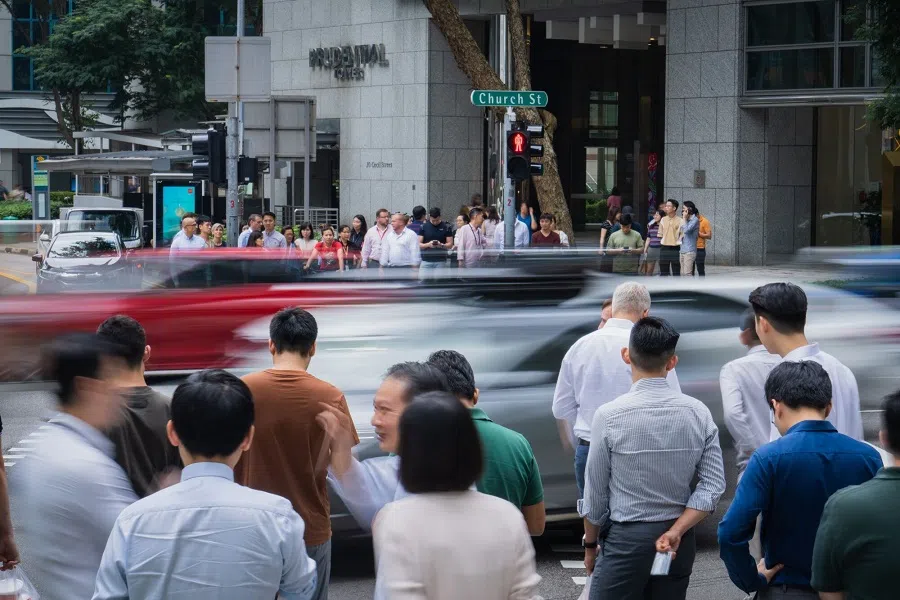
The fractious social compact in many countries is in part driven by social inequalities and economic insecurities caused by technological disruptions. When fruits of growth are not shared equally, the income gap between the able and the less able will widen. Access to opportunities for the less privileged would also be lesser.
Another part of it is driven by the diverse aspirations and needs of our people, as societies become more affluent and better educated.
Yet, another reason is the results of a hyperconnected world. Exposure to external influences with different contexts and value systems from other parts of the world can ignite the contestation of ideas and ideologies in society, and lead to incessant comparisons. Often social media amplifies these social divides.
However, the challenges of our world are more connected than ever before. No country, big or small, can live in isolation, insulated from the rest of the world.
The Covid-19 pandemic has shown us how inextricably interconnected and interdependent we are, not only in pandemic prevention and management, but also in supply chains, global economic growth and global financial systems.
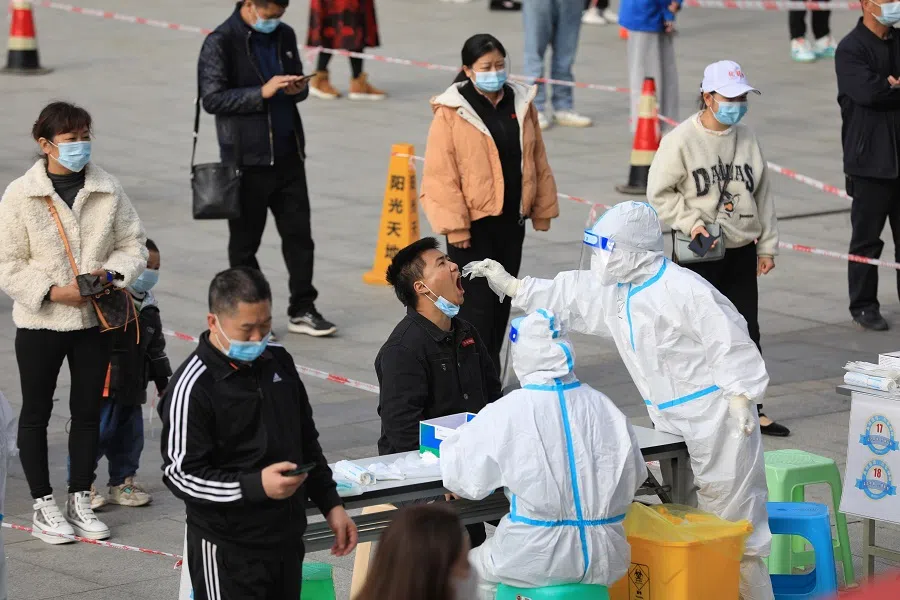
Climate change is also another looming crisis that presents fundamental threats to our survival, from rising sea levels, climate-related diseases to food and water insecurity.
Three areas of change
The Chinese term 危机 represents crisis, but within it, there are also opportunities in every crisis and challenge. We must turn crisis into opportunity, and turn pressure into motivation (化危机为转机,化压力为动力). We must be agile to change ourselves - to overcome the challenges together, remain relevant to the world, earn our keep, and keep our people together through thick and thin.
When countries break the rules, especially the bigger players, they lose their moral authority and embolden others to similarly disrespect the rules.
International front
First, to thrive in a highly interconnected world, it is about "building bridges and not walls". It is time for us to work together for closer, not weaker, international cooperation for countries to navigate across the many shared challenges.
We must work towards developing a "multi-dimensional global cooperation system":
One, a system that is anchored by the rules-based multilateral system, where all countries, big and small, play by the rules. When countries break the rules, especially the bigger players, they lose their moral authority and embolden others to similarly disrespect the rules. If the global security and trading systems come under strain, eventually we will all be worse off. To progress ahead collectively, every country must be trusted to play their role in upholding and shaping the global rules.
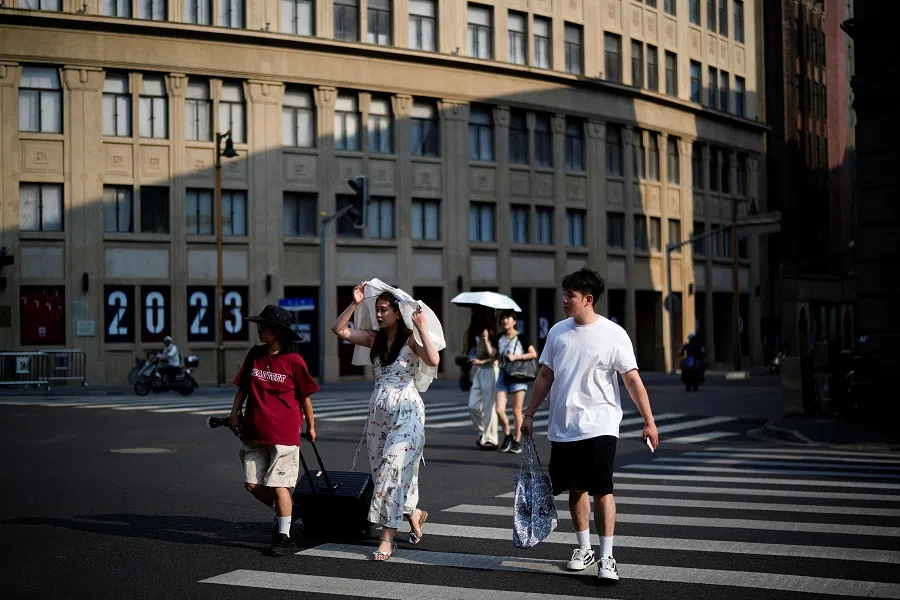
Two, it should also be a system that is backed by new structures and cooperation to strengthen the speed and effectiveness of global action to address transboundary challenges. For instance, the rise of global pandemics requires new systems of surveillance and information flow, and greater cross-border scientific cooperation, so that we can be more effective in pre-empting and responding to deadly outbreaks. We can only achieve this by working together and not alone.
Autarky and being closed, on the other hand, concentrates all the risk in one country and makes one more vulnerable in the longer term, on top of risking being bypassed by progress elsewhere.
Economic front
Second, on the economic front. We all seek efficiency and resilience. But resilience is best achieved through diversification and interdependence, rather than independence. Staying open will keep trade flows going and bring about the diversity of sources we need to strengthen our respective economic resilience. Autarky and being closed, on the other hand, concentrates all the risk in one country and makes one more vulnerable in the longer term, on top of risking being bypassed by progress elsewhere.
However, diversification for resilience does not equate with bifurcation. It means pushing for global integration through the strengthening of multilateralism, as well as the upholding and updating of an international rules-based order.
We must also entrench ourselves in the global value chain with a future-oriented view. When the winds of change blow, some will build walls, others will build windmills (当变化的风吹起时,有人会造墙,有人会造风车). The choice is ours to make. We must be the ones that build the "windmills" to capture early the new opportunities of growth such as digitalisation and sustainability, collaborate with our partners, and be able to adapt in an agile manner.
Social front
Third, on the social front. Domestic stability and external resilience are mutually reinforcing - solidarity and cohesion at home is the foundation for our confidence to operate on the international front. To win the world, we need to win the trust and hearts of our people.
This means that we will need to elevate our people, to ensure that they have relevant and future-ready skills, good jobs available and strong social safety nets to cope with uncertainties during each economic refresh.
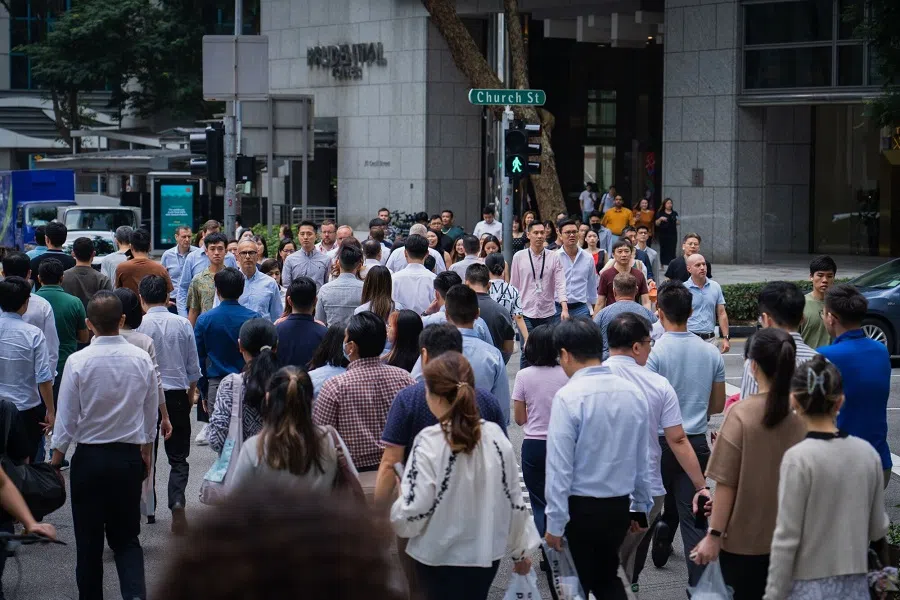
Every citizen must have a stake in the country, and must believe that it is worth doing our part, because success for our businesses or success for ourselves is aligned to the success of the country.
Apart from social policies that ensure the success of economic growth is shared, it also means adopting a model of governance that engages the energies and ideas of both the citizens and businesses.
As the saying goes, to govern a country, one must first enrich the people (治国之道,必先富民). We will also need to adopt a growth model that is "high-quality" and "inclusive" - one that lifts all boats, and one that does not enable growth and prosperity for one generation at the expense of future generations. This means that we will need to elevate our people, to ensure that they have relevant and future-ready skills, good jobs available and strong social safety nets to cope with uncertainties during each economic refresh. This is why for every generation of Singaporean leaders, we define success by not just how well we can do for this generation, but also how well we enable future generations to do even better than the last.
China-Singapore collaboration in forging a new path forward
As we navigate the new challenges and embrace the winds of change, Singapore and China can tap on our upgraded bilateral relationship with China to an "All-Round High-Quality Future-Oriented Partnership" and explore new solutions together.
The upgrade in our bilateral relations signifies our commitment to broaden and deepen high-quality, forward-looking cooperation in areas of mutual interest, such as digital and green economies, food security, financial market, air connectivity, as well as environmental sustainability.
China and Singapore continue to facilitate greater bilateral cooperation in trade and economic development, and to seek out new areas of collaboration.
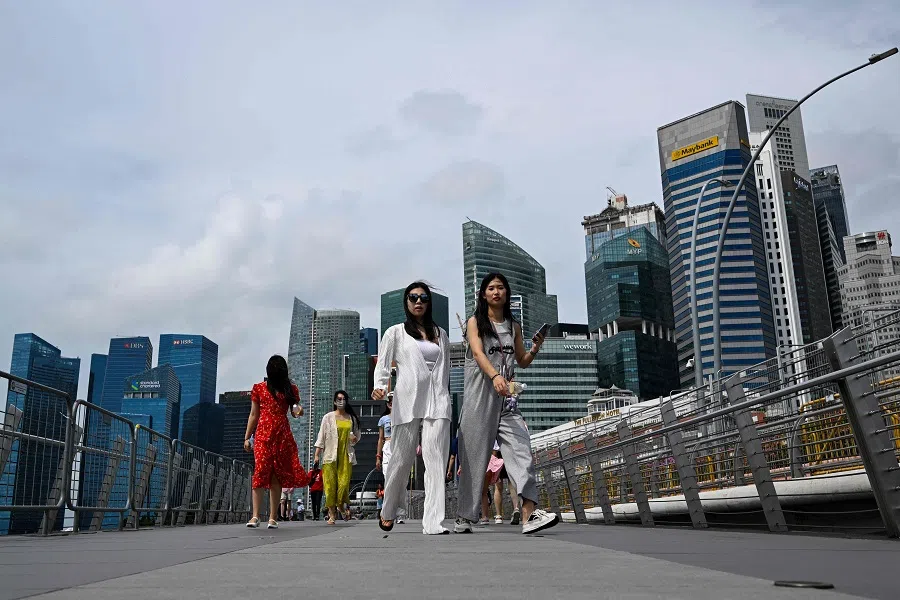
For instance, this year, we have also reached another important milestone with the substantive conclusion of the China-Singapore Free Trade Agreement (CSFTA) Work Programme for Subsequent Negotiations. This sends a strong and positive signal of our longstanding bilateral economic collaboration and more importantly, also reflects our continued commitment to free trade and a rules-based trading system.
Expanding from bilateral to international cooperation
As we welcome China's increasing connectedness to international trade and investment, there are opportunities for Singapore and China to strengthen our partnerships in this area, including private-led collaborations, by leveraging Singapore as a thriving economic, research and financial hub; and an economic bridge between the East and the West, North and South, through our strong international connectivity, our extensive network of free trade agreements, robust legal system, as well as coherent and consistent government policies.
Singapore maintains our continued relevance through a global strategy of connectivity not only across air, land and sea but also across data, finance, digital, regulations and talent; as well as through our active and constructive role in the global community to advocate stable, rules-based global order and multilateral institutions, and our experience in navigating business environments around the world.
The next question is how we can better collaborate to achieve joint success.
This allows the projects to evolve from geographically based projects at the local and regional levels to theme-based collaborations that inspire countrywide application and international partnerships.
Developing 'theme-based projects that inspire countrywide application'
The three G2G projects have always been a unique characteristic of our bilateral relations. They have evolved with China's development needs, from local pathfinder projects, such as the Suzhou Industrial Park and Tianjin Eco-City, to regional projects, such as the CCI in support of China's Western Region Development (WRD) and the Belt and Road Initiative (BRI).
Looking ahead, these G2G projects can be refreshed to trail blaze new development models of "high-quality growth" and experiment with innovative approaches to governance. This allows the projects to evolve from geographically based projects at the local and regional levels to theme-based collaborations that inspire countrywide application and international partnerships.
Tianjin Eco-City (sustainability and low-carbon growth)
One example is the Tianjin Eco-City (TEC), which celebrates its 15th anniversary this year. While the last 15 years were focused on sustainable urban planning and development, the TEC in the next 15 years can be a model for high quality, low-carbon growth - an incubator of new low-carbon innovations, start-ups and businesses, and a centre of skills development in sustainability related technology.
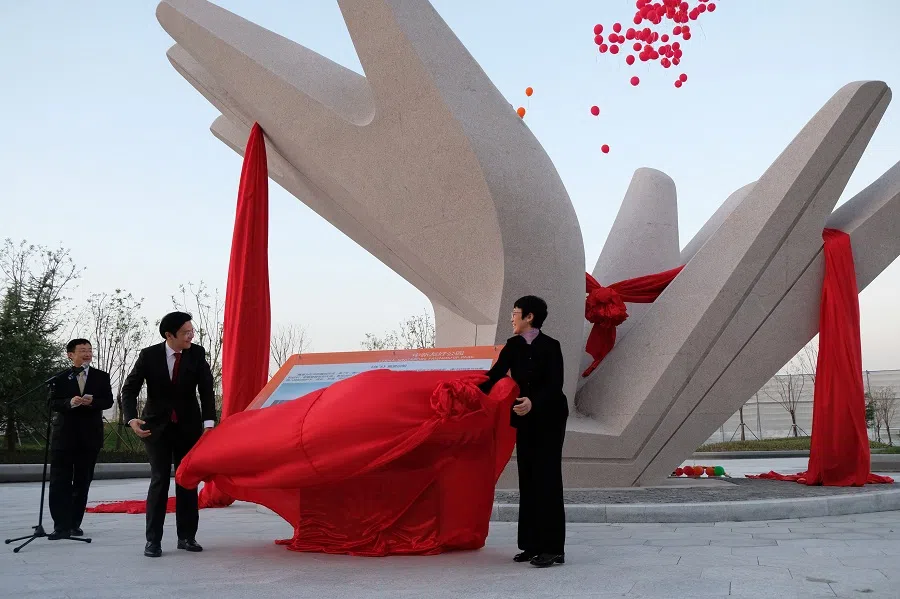
Both sides are discussing cooperation in green and digital shipping. With a smart and green port, as well as a vibrant talent ecosystem through active talent development and knowledge exchange, Tianjin has great potential to build a vibrant port economy and catalyse the growth of the whole Jing-Jin-Ji.
Chongqing Demonstration Initiative on Strategic Connectivity (multimodal connectivity)
Another example is our third G2G project in Chongqing. It provides a successful model for enhancing connectivity in multiple dimensions to drive high-quality growth.
Through the CCI-New International Land-Sea Trade Corridor, Singapore and China have promoted stronger regional economic integration by providing traders with a faster and more efficient link between Southeast Asia, Western China and beyond. Our joint efforts to enhance digital and trade connectivity have also complemented the development of infrastructural links between Singapore and Chongqing.
The CCI has demonstrated how enhancing connectivity in traditional and newer areas can help under-connected and under-served regions find new growth engines and realise their economic potential.
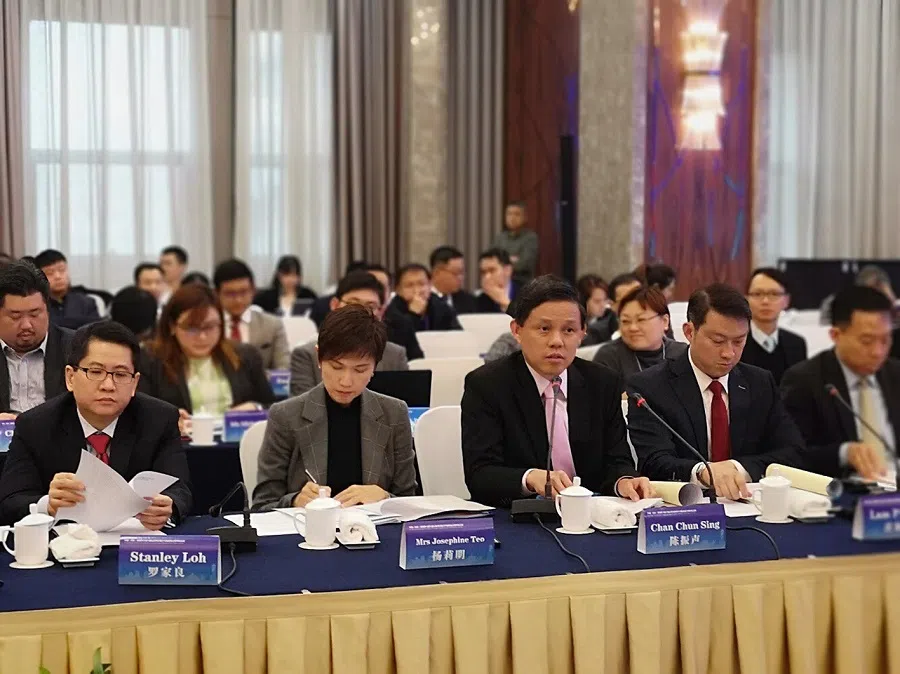
Our experience from the success of our G2G projects and our strong collaborations at the eight Provincial Business Councils, put us in good stead for more and stronger partnerships. We look forward to jointly exploring and experimenting new ways of governance to keep up with the evolving social, political, economic and international challenges.
When our future generations grow together, we are planting the seeds for deeper understanding and mutual trust for the next generations.
Strengthening trust
Trust is key to moving ahead into our next bound. We can further strengthen the foundation by tapping on our history in human resource development and people-to-people exchange; and enhance the opportunities for our next generations to grow together.
Since 1996, we have received and trained many Chinese officials and cadres across a wide range of carefully curated study visits, attachments and training programmes. Singapore has also sent many of our senior officials and high potential young officers on study trips to different parts of China to learn from your developmental experiences. I look forward to creating more opportunities for mutual learning and exchanges between both countries. On top of our existing engagements such as the Shanghai-Singapore Senior Officials Exchange Programme, new platforms at the central level could be useful to deepen our collaboration and sharing on multifaceted challenges that both countries face in our respective context.
Another is the Singapore-China Youth Interns Exchange Scheme (YES) which was officially launched in July this year. This initiative offers a platform for the younger generation to nurture new friendships and ties, and better appreciate each other's culture and economy.
When our future generations grow together, we are planting the seeds for deeper understanding and mutual trust for the next generations. This is the main reason why Singapore and China can work together across so many dimensions from economics to social and security. But we must never be complacent. We benefited from the efforts of previous generations. We must continue to invest in our future generations, to enable them to do even more and better than our generation.
Many shared challenges for mutual learning
This is also the first year that China is implementing the directives of the 20th National Congress of the Communist Party of China, which has elaborated on Chinese-style modernisation. We share common goals such as the pursuit of high-quality growth to build a strong and resilient economy, improving our citizens' well-being, promoting sustainability and cultivating high-calibre talent.
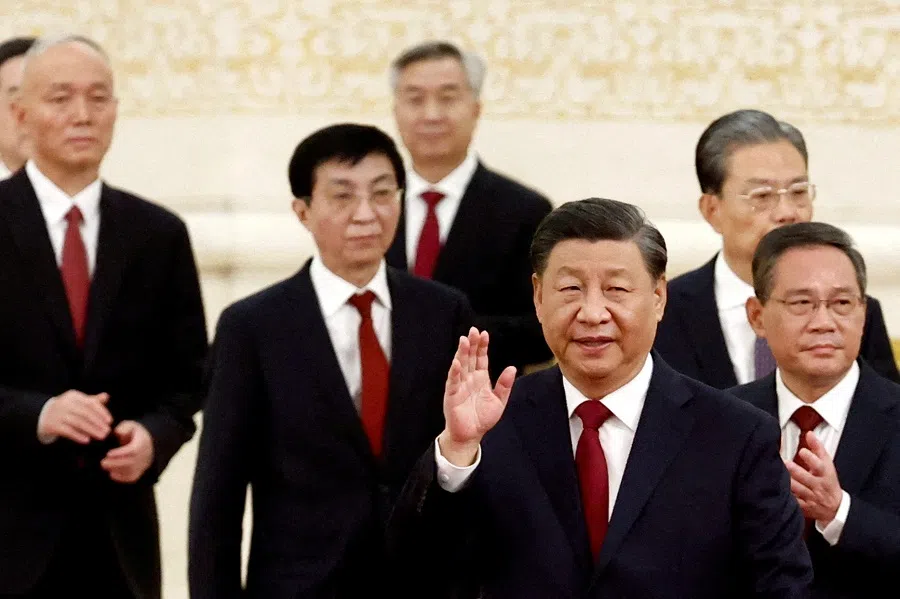
This also means we face many shared challenges as we move ahead.
For example, the ageing population. This has massive social and economic implications, with rising demands on healthcare, retirement adequacy and social integration that need to be balanced against the impact it has on our workforce and economy. Singapore is looking at this issue very seriously.
Last year, we rolled out the Healthier SG strategy, a fundamental re-orientation and reform of our healthcare system. One that is focused more on preventive care and greater self-responsibility supported by the community, as well as the promotion of 'active ageing'.
We are also bolstering retirement adequacy through regular reviews of our Central Provident Fund (CPF) system, and the strengthening of our jobs and skills landscape.
This is also in sync with the overall reform of our jobs and skills landscape in meeting the diverse aspirations of our people. We embrace the diversity of strengths and broaden our definition of success. This includes providing diverse education pathways and creating multiple career paths to success.
The management of new media has also been a rising "hot" topic, as we all learn how to better manage and regulate information in the digital era. With the proliferation of different media types and platforms, it is important to safeguard against falsehood or content that could undermine social cohesion.
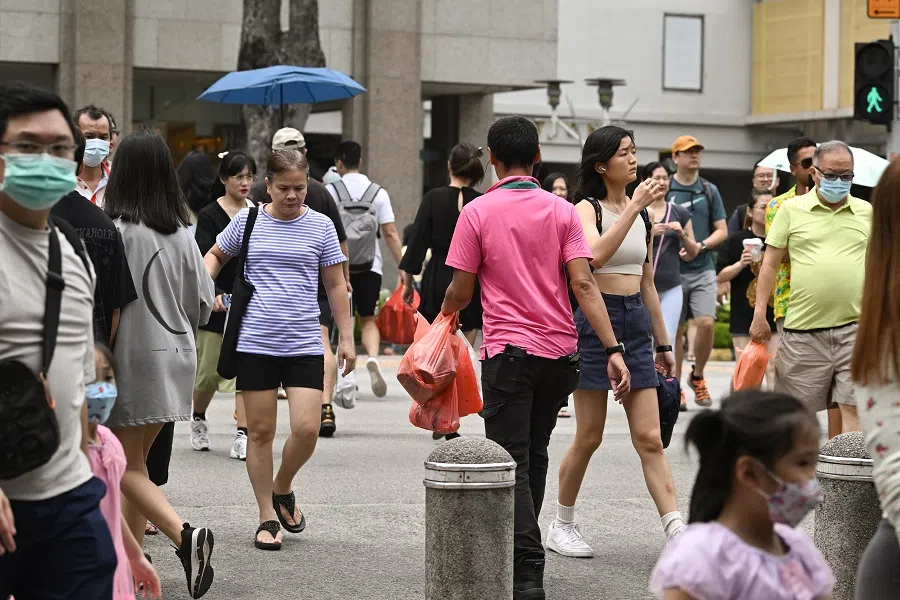
The sustainability of our future is another pressing agenda on the global front. Singapore has made this a priority focus area - on the domestic front to steward a green and liveable nation across our business, communities and individuals, and on the global stage to forge international collaborations on climate actions.
Dealing with these challenges requires cohesive leaders who are capable of leading the country in a volatile world - leaders who work well together, not only within the government and with the people, but also with businesses and globally with international partners. The exposure to international perspectives and the building of global networks are particularly critical to Singapore.
What I have mentioned are not only shared challenges, but also opportunities for mutual learning. In Singapore, we too are embarking on our own exercise to refresh our social compact this year and the vision of Our Future Singapore - a Singapore that lasts, endures and thrives for generations to come.
... trust between people and people, and people and government, is the foundation of all that we do.
Building the future
In summary, while our circumstances and contexts may be different, we share many similar challenges and opportunities. More importantly, we can also share many best practices in how we evolve our governance approaches to serve our people and country.
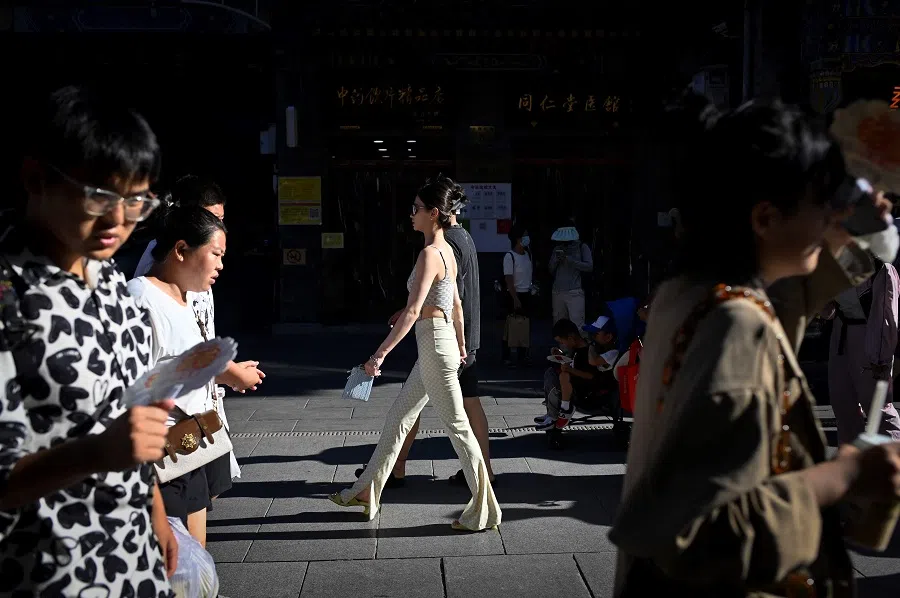
In Singapore's context: one, trust between people and people, and people and government, is the foundation of all that we do. It is also this trust that enables us to achieve good governance and success through collective actions. Minister Li Ganjie (Member of the Political Bureau of the Communist Party of China and CPC Central Committee Organisation Department Minister) also mentioned that to win the hearts of our people, trust is fundamental. That resonated with us. Two, the livelihood and well-being of our people form the core of our purpose in government, where everyone in every generation can have hope for a better future.
Beyond our shores, we seek to build wider and deeper partnerships with as many countries as possible by value-adding constructively to our partners. To do so, we must remain a principled and relevant partner that is trusted by all.
In sum, "we can only stay ahead of the competition by having integrity as our root, staying people-oriented, and convincing others with virtue" (诚信为根,以民为本,以德服人,才能引领群雄).
Related: Heng Swee Keat: Singapore and China will build better future for region and the world | Singapore DPM: Singapore can help to better connect China with Southeast Asian markets | Singapore's prominent role in China's trade strategy | Former Chinese Vice-Minister He Yafei: Singapore and ASEAN have important roles to play in a multipolar world | Connecting Chongqing and Southeast Asia: Challenges and potential of China-Singapore (Chongqing) Connectivity Initiative
